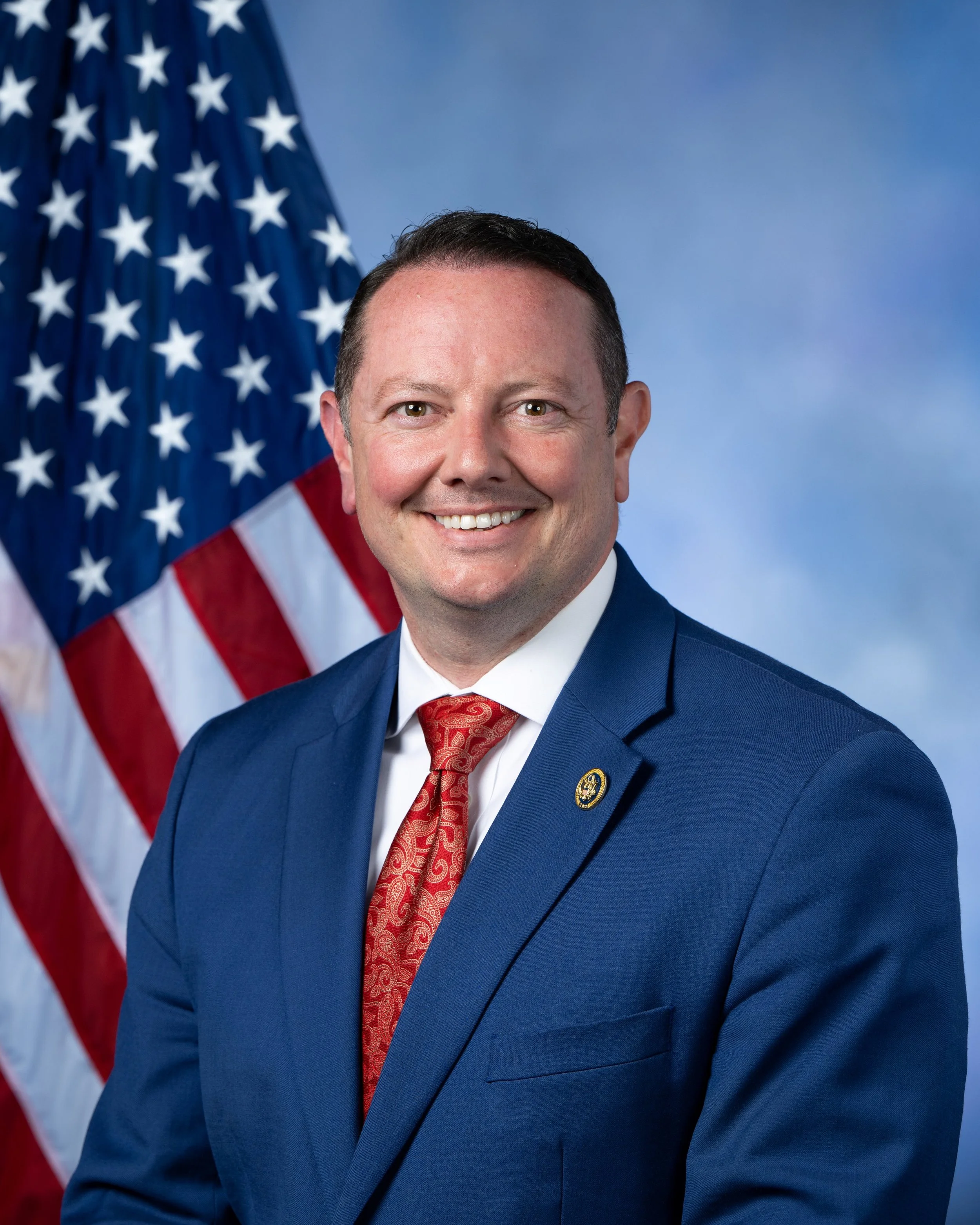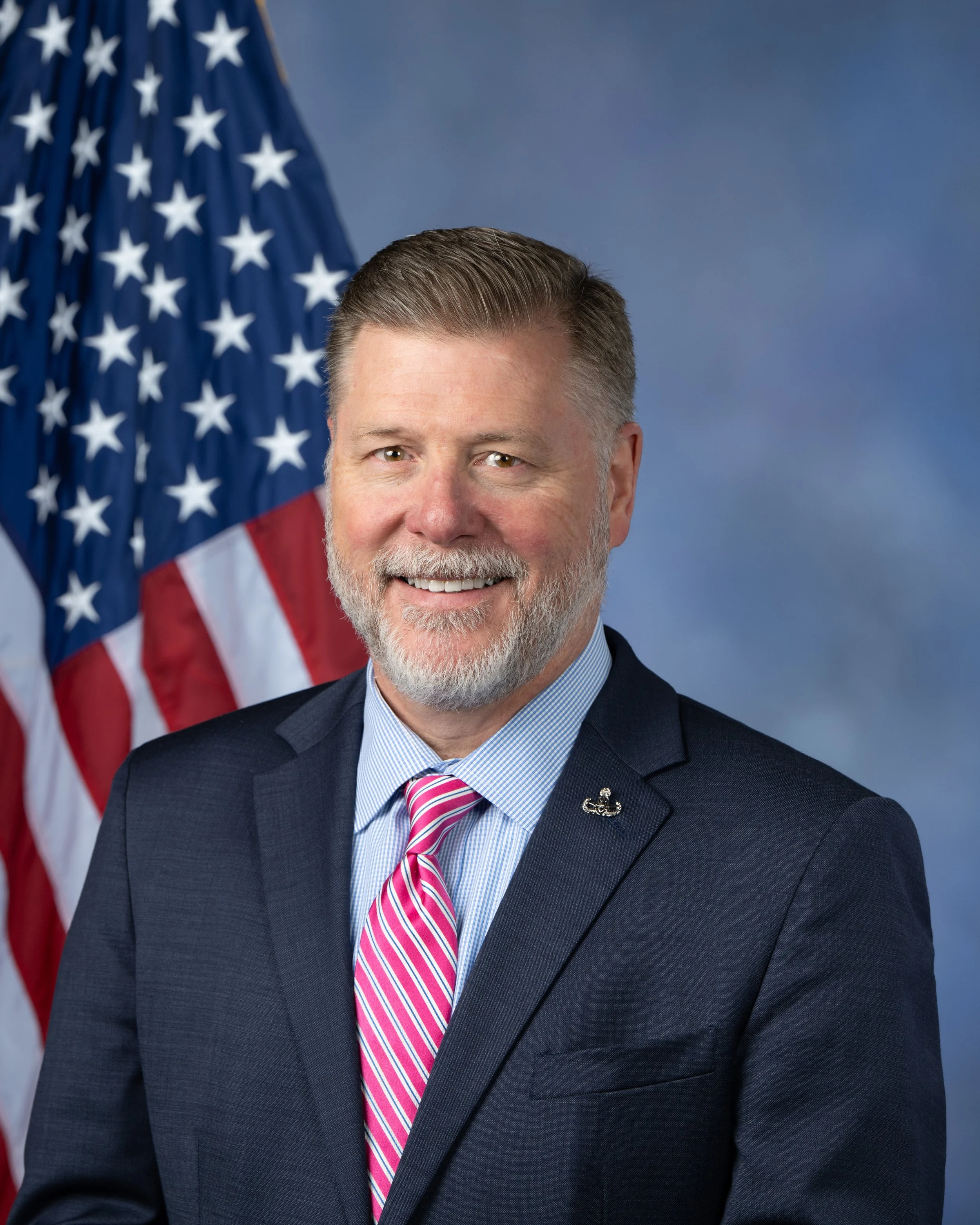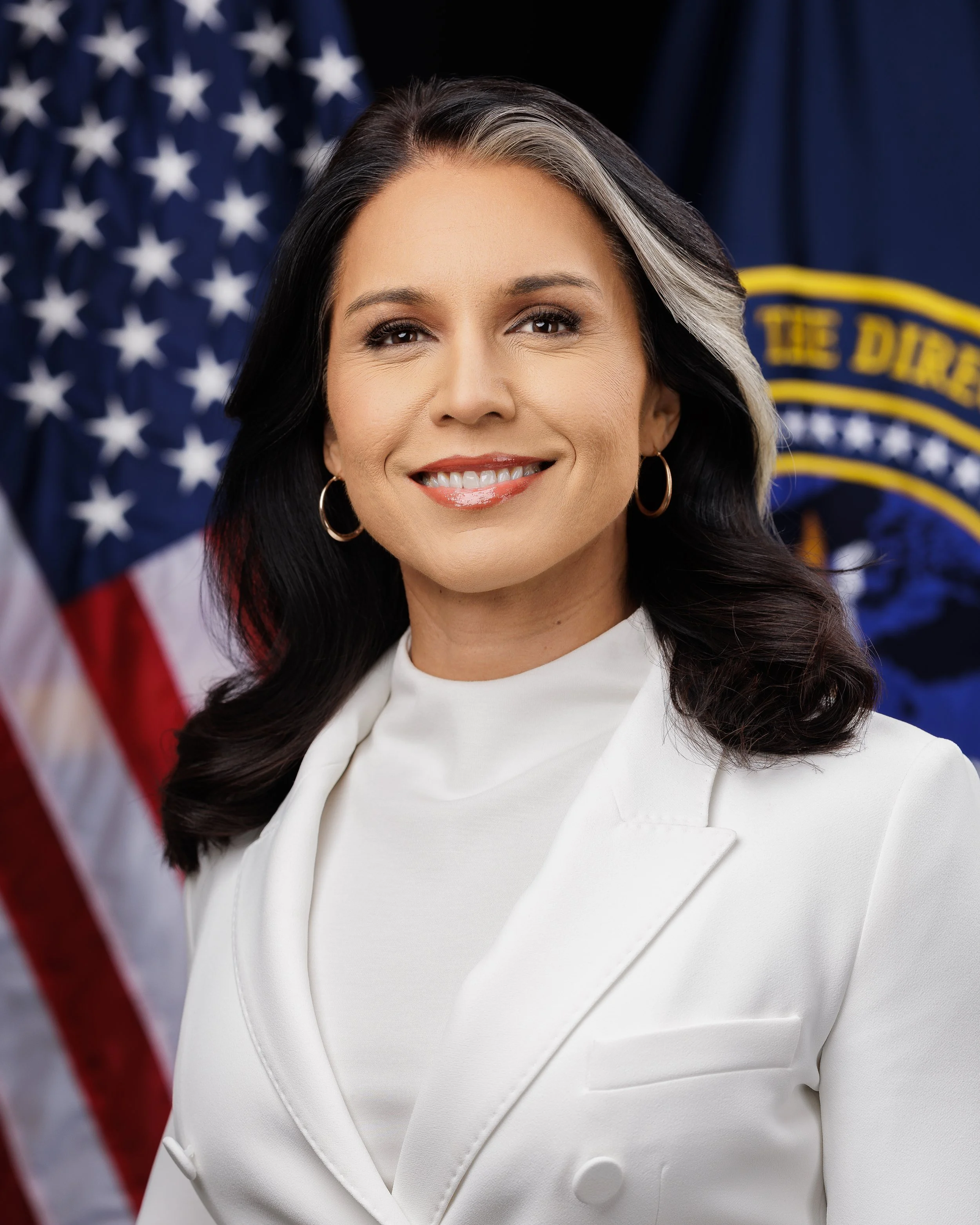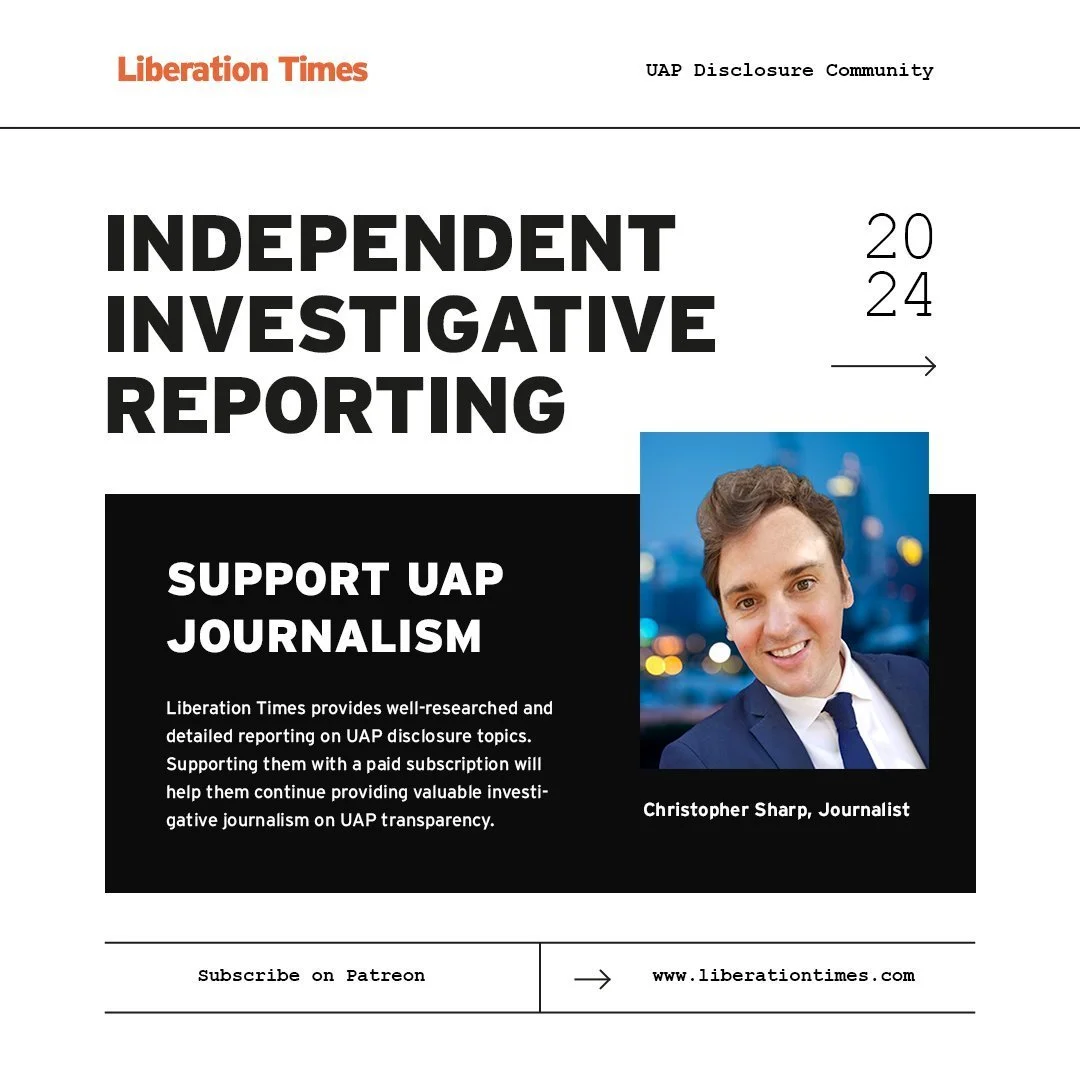Exclusive: Representative Eric Burlison Talks UFO Hearings, the Disclosure Act, and Oversight Challenges
Written by Christopher Sharp - 18 August 2025
Representative Eric Burlison of Missouri’s 7th District has emerged as one of Congress’s most active voices in the push for transparency on Unidentified Anomalous Phenomena (UAP).
Proud of his Midwestern roots, Burlison has not only delved into the details of the issue but also taken concrete steps, most notably by hiring former senior intelligence officer and UAP whistleblower Dave Grusch to his staff.
He approaches the UAP question with pragmatism and objectivity.
While he holds no firm position on whether the phenomena may be of non-human origin, he does not dismiss the possibility. Instead, he is focused on testing and verifying whistleblower claims - some of which he has been vocal about, though critics have at times misrepresented these remarks as his conclusions.
With a new UAP hearing expected on 9 September 2025, before the House of Representatives’ Task Force on the Declassification of Federal Secrets, where he serves as a member, Burlison told Liberation Times there could be as many as five witnesses called to testify, adding that he hopes at least four will appear:
“I got a memo from the staff about five potential witnesses we’re working on, and hopefully four of them will be at the hearing. So we’re narrowing in on the names.”
Burlison emphasised that the upcoming hearing is not just about testimony on the day itself, but about creating momentum for further action, stating:
“We have an opportunity to use this hearing to build on the conversations already happening and to get more information. I don’t want to say too much, but there is a mechanism available to this committee that we’ll be able to lean on after the hearing to gather more.”
When asked whether the committee might also subpoena hostile witnesses, those who would otherwise refuse to testify before Congress and who may have sought to obstruct transparency efforts behind the scenes, Burlison confirmed it was possible, adding that it could happen as soon as this year, only months after the expected upcoming hearing.
“Yes, it might be within a couple of months of the hearing this year.”
The possibility of hostile witnesses reflects a broader struggle between Congress and the intelligence community over access to information. Burlison admitted that his own experience has been eye-opening, particularly in seeing just how carefully guarded sensitive material is, commenting:
“What’s incredible to me is working with the intelligence community and seeing the level of complexity in how they protect information. It’s absolutely remarkable, and I’d say that’s been the most eye-opening part for me.
“As someone who truly believes this government belongs to the people - that the people own the government, not the other way around - it’s disturbing to see how powerful the intelligence community has become.”
Burlison’s frustration over how tightly the intelligence community guards information, and the very real possibility of facing ‘hostile’ witnesses, underscores the imperative for legislative reform.
Enter the UAP Disclosure Act (UAPDA), spearheaded in the Senate by then Majority Leader Chuck Schumer and Senator Mike Rounds in July 2023.
Modelled explicitly on the JFK Assassination Records Collection Act, the bill is designed to establish an independent review board, empowered to collect, review, and declassify government records related to UAPs, including recovered technologies and biological evidence of possible advanced non-human intelligence.
Despite bipartisan backing, the UAPDA has faced repeated setbacks for the last two years. Its provisions were included in the Senate version of the 2024 National Defense Authorization Act (NDAA)but ultimately stripped out during conference negotiations, effectively blocking its entry into law.
The UAPDA has been filed again this year by Senate Minority Leader Chuck Schumer, with Senators Mike Rounds and Kirsten Gillibrand as co-sponsors.
In parallel, Burlison is working to build momentum for the measure in the House of Representatives.
Much of the previous resistance to the legislation is alleged to have come from former House Intelligence Committee Chair Representative Mike Turner. But with Representative Rick Crawford now leading the committee, Burlison is more optimistic, commenting:
“I think he [Representative Rick Crawford] would be much more likely to support the UAPDA than Representative Turner. I’ve had some very positive conversations with Rick —he’s a great guy.
“He’s kind of like Trump: a man of the people, from the salt of the earth here in the Midwest. It’s just a different attitude from people like us. So, based on those conversations, I feel like we’re in better hands with regard to the UAPDA.”
Although the disclosure act was reintroduced as an amendment to this year’s Senate NDAA, it has not yet been included in the Senate’s final draft.
That leaves it vulnerable, because any provision not firmly anchored in both the Senate and House versions of the bill is at high risk of being dropped during the conference process, the closed-door negotiations where lawmakers merge the two bills into a single package for the President’s signature.
With that in mind, Representative Burlison is working to embed the UAPDA language into the House version of the NDAA.
By ensuring the measure appears in both chambers’ bills, he hopes to strengthen its chances of surviving conference negotiations and ultimately becoming law. As he told Liberation Times:
“With the UAP Disclosure Act I’m working on, we’re trying to file the same language on the House side and make sure it stays in the Defense Authorization Act.”
Burlison’s push to strengthen the UAP Disclosure Act reflects his concern that the most sensitive programs remain almost entirely beyond Congress’s reach. In his view, true oversight requires pulling back the curtain on where control of these programs resides - within the White House itself - Burlison commented:
“From what I’ve learned - and I say this as someone who is not from the intelligence community and who didn’t serve in the military, so I’ve had to get up to speed based on what I’ve been told - the Office of the National Security Advisor [the National Security Council staff] is handling these [UAP] Special Access Programs.”
Sources also told Liberation Times that this alleged concealment is not confined to distant agencies or contractors, but operates directly under President Trump’s nose - protected by elements within the National Security Council and by entrenched career officials embedded in two key White House offices.
When asked whether President Trump is truly committed to investigating UAP - and whether he is aware of the level of secrecy embedded within his own White House - Burlison offered a measured assessment:
“I think that if he has the time and bandwidth, President Trump would [investigate the UAP topic]. To him, this isn’t as high-profile or high-priority as it is to some people, and I think he’s focused on getting the economy, the tax system, and the overall structure of the United States right before delving into topics like this.
“But I do think that if we can clear the plate and he has time to focus on it, my gut instinct is that Trump—being a man of the people who hates the deep state—would want to disclose.”
When pressed whether President Trump would support the UAPDA, Burlison responded:
“I don’t think President Trump is going to make the UAPDA a priority, or something his office will lean on to win votes. But I also don’t think his office would fight it. If anything, they would probably support it, though I don’t think they would spend political capital to get it passed. That’s just my guess.”
Beyond Trump himself, Burlison also pointed to members of the President’s Cabinet as potential drivers of disclosure.
One official within President Trump’s Cabinet, Director of National Intelligence Tulsi Gabbard, recently made headlines after acknowledging in a podcast interview that she believes extraterrestrial life could exist. Speaking on the New York Post’s Pod Force One, Gabbard responded “Yes” when asked directly if aliens might be real.
She added, “I have my own views and opinions, and in this role I have to be careful with what I share.” While unable to go into further detail in her official capacity, she emphasised that her office remains committed to “continuing to look for the truth and share that truth with the American people.”
When asked whether Director of National Intelligence Tulsi Gabbard’s new task force - the Director’s Initiatives Group, established to restore trust in the Intelligence Community through targeted declassification - might also extend its work to UAP, Burlison expressed cautious optimism:
“I do. From what I hear and see with Tulsi, she’s not messing around—she’s trying to right the wrongs. Based on everything I’ve seen, I’m excited about her in this position [as Director of National Intelligence], because I think she truly supports disclosure.
“We’ve already seen amazing releases, like documents related to the JFK assassination. Some of those were really damning for the CIA—events from 60 years ago, yes, but still things the Agency clearly didn’t want out. Yet under Tulsi’s leadership, they were released.”
Burlison also revealed that UAP whistleblower Dave Grusch has been working with Gabbard’s office to regain his full security clearances, explaining:
“He [Dave Grusch] is in communication with Tulsi Gabbard’s office. What we’ve been trying to track down is the obstacle to him getting full Top Secret/Sensitive Compartmented Information clearance.
“I think it has something to do with the rules of the House Sergeant at Arms, so we’re going to try to follow up on that.”
Yet even with whistleblowers engaging the administration, doubts remain about how effectively the White House is handling unexplained incidents.
Between November 2024 and January 2025, U.S. and allied forces in Europe and the United States reported a wave of mysterious so-called drone incursions over sensitive defense installations.
The incidents triggered security alerts and prompted questions over whether the vehicles were linked to foreign adversaries - and there have been documented instances when the U.S. military could not detect or jam such mysterious objects.
The fact that U.S. forces could not always detect or counter these craft has only fueled speculation about their origin
The White House, however, later downplayed the events, suggesting many of the sightings were misidentified aircraft and insisting there was no evidence of a national security threat.
Many, including the Director of National Intelligence, Tulsi Gabbard, have questioned on the suggestion that the incursions were resolved.
The UAP community have criticised President Trump’s White House for not providing transparency on the incursions.
Burlison took a different view. While defending President Trump, he argued the real problem was bureaucratic failure rather than concealment:
“Never underestimate the ineptitude of government employees and their inability to act. I think we’re often overly confident about our government’s capabilities. In my view, the most likely scenario is that they don’t know [what the so-called drones were], and they’re embarrassed that they don’t.”
With a potentially landmark hearing expected next month, Burlison struck an optimistic tone about what could be achieved on the UAP topic in the coming months and years:
“Hopefully, we can get the White House’s support and a briefing on this topic for members, and that they won’t hold back information. Ideally, they would push the intelligence community to be fully transparent - to ‘open the kimono,’ so to speak.”
Whether that optimism proves justified may hinge on Congress’s ability to force the government’s most closely guarded secrets into the light.
The coming months will reveal whether the next hearing and the full inclusion of the UAPDA can succeed - bolstered by parallel efforts from Gabbard’s office and, potentially, the White House itself.




